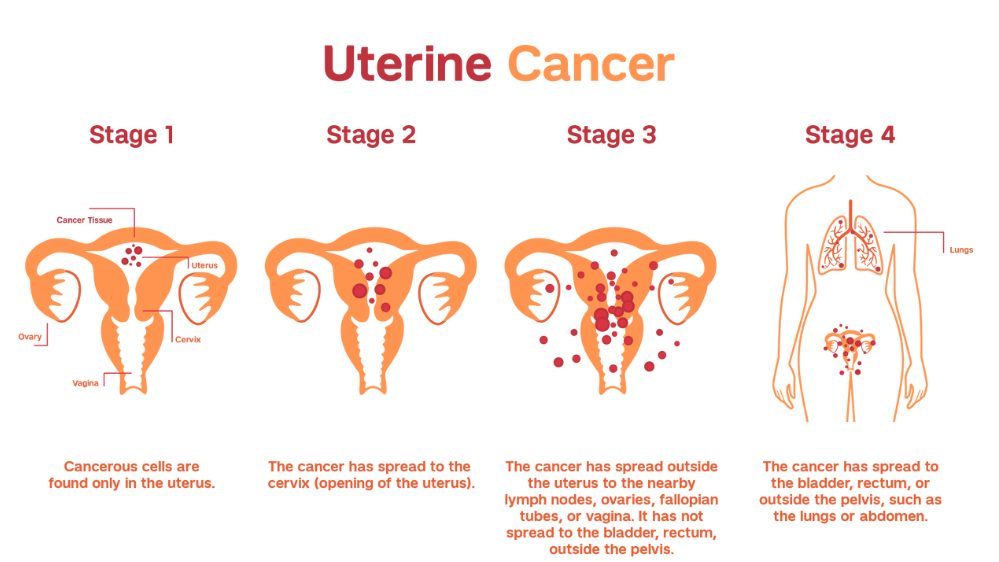Trusted Uterine Surgeon in Ghaziabad
As a skilled uterus surgeon in Ghaziabad, Dr. Seema Singh has successfully performed numerous uterine cancer surgeries with precision and care. Dr. Seema Singh’s surgical skills, along with advanced facilities, ensure the best results for her patients.

Seeking a Second Opinion for Uterine Cancer
If you or your loved one has a uterine cancer diagnosis and seeks a second opinion, Dr. Seema Singh’s clinic welcomes you. She provides in-depth evaluations and expert insights to help you make informed decisions about your treatment plan.
Understanding Uterine Cancer
Uterine cancer, also known as endometrial cancer, affects the lining of the uterus. Early detection and timely intervention are essential for successful outcomes. Dr. Seema Singh specializes in diagnosing and treating uterine cancer, ensuring the best possible care for her patients.
Comprehensive Uterine Cancer Treatment
Dr. Seema Singh, a well-known uterine cancer specialist in Ghaziabad. She is committed to supporting women through their uterine cancer journey with individualized care and advanced treatments, helping many overcome uterine cancer successfully.
Dr. Singh's expertise in minimally invasive techniques ensures she can precisely and effectively remove tumors with faster recovery times.
Targeting hormone-sensitive tumors, hormone therapy helps Dr. Singh manage and slow the growth of cancer cells.
Dr. Singh employs advanced radiation therapy methods to target and eliminate cancer cells while preserving healthy tissues.
Personalized Care and Support
At Dr. Seema Singh, tailors each patient’s care to their unique needs and medical history. Her team offer compassionate support and guidance throughout the treatment process, ensuring patients feel empowered and well-cared.
Contact Dr. Seema Singh, Your Uterine Cancer Specialist in Ghaziabad
Take a step towards your uterine cancer journey by scheduling a consultation with Dr. Seema Singh. Benefit from the expertise and experience in uterine cancer care to achieve the best possible outcomes.
Frequently Asked Questions
What is Uterine cancer ?
Uterine cancer is the most common cancer that affects a woman’s reproductive system. It starts when normal cells in the uterus undergo changes and start growing uncontrollably, forming a lump known as a tumor. There are two types of tumors: cancerous and benign. A cancerous tumor is called malignant, and it can grow and spread to other parts of the body. On the other hand, a benign tumor may grow, but it usually does not invade or harm nearby tissues.
What are the symptoms of Uterine Cancer ?
The most common symptom of Uterine cancer is unusual vaginal bleeding, If you experience vaginal bleeding after menopause, it could be a sign of a problem and should be checked by a doctor.
Symptoms of uterine cancer include.
- Vaginal bleeding or spotting after menopause.
- A watery pink or white discharge from the vagina.
- Persistent pain in the lower abdomen or pelvic area lasting for two or more weeks.
What are the types of Uterine cancer
Endometrial cancer It starts in the endometrium, which is the inner lining of the uterus. It is a common type of cancer that affects the reproductive system in women.
Uterine sarcoma It develops in the myometrium, which is the muscle wall of the uterus. Uterine sarcomas are extremely rare compared to other types of uterine cancers.
What are the treatment options for Uterine Cancer
Uterine cancer is typically treated with surgery. During this procedure, the uterus, fallopian tubes, and ovaries may be removed, along with nearby pelvic lymph nodes. The surgery can be performed through different approaches, such as open surgery, laparoscopic surgery, or robotic surgery.
The treatment plan you receive will depend on various factors, including:
- The stage, grade, and specific type of your cancer.
- The size and location of the cancer.
- Your age and overall health

